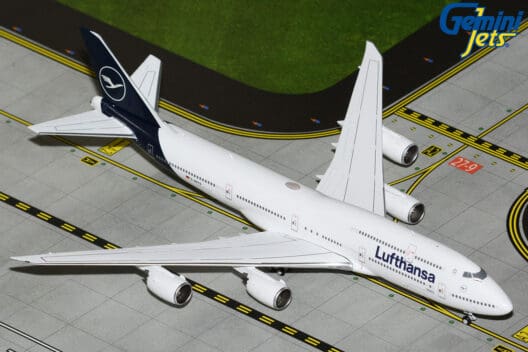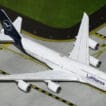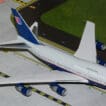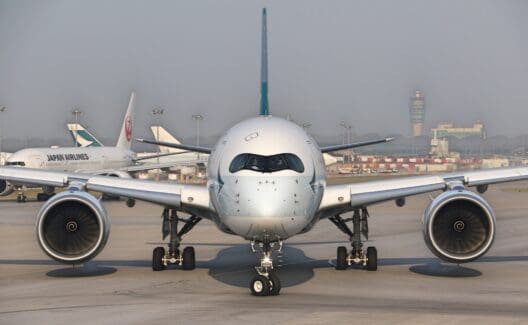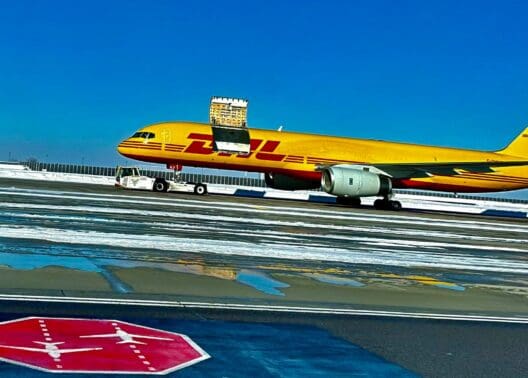There’s no doubt that air cargo has been a vital service to the global population, even before COVID-19. Thanks to an increase in online shopping, domestically and internationally, the need for fast and efficient air freight is becoming extremely important. After all, it is the cargo industry that keeps the world moving.
Cargo Talks by Turkish Cargo has been organised to help with this trend; by allowing valuable stakeholders of the sector to exchange ideas, focusing on the present and the future of air cargo.
The event was opened by Mr İlker Aycı, Turkish Airlines Chairman of the Board and the Executive Committee, and Mr Turhan Özen, Chief Cargo Officer at Turkish Airlines. I was the presenter of the digital event, with speakers. including cargo executives and other valuable figures in the industry, all sharing their insight. The event utilised a cool 3D stage with on-air graphics. Panel members, from around the world, joined in the discussion online.
The Future of Air Cargo
The air freight sector has undergone a massive upheaval in the past 12 months, including enormous disruption to capacity supply and demand patterns, tremendous pricing volatility, as well as huge operational challenges such as quarantine regulations and staffing issues with border restrictions.
I’ve learnt some interesting information about the freight industry; air cargo only accounts for 1% of the total cargo shipped in the world, however it accounts for 35% of the total value. E-commerce has grown tremendously during the pandemic, with air cargo companies looking to enhance and capitalize on their roles in E-commerce logistics.
Digitization of Air Cargo – Accelerating Transformation
From the panel discussion, clearly the future of air cargo depends on more digitization.
Henk Mulder, Head of Digital Cargo at the International Air Transport Association (IATA), said “The most important tool that has allowed the air cargo community to keep going is, without question, the full digitalization of the workplace. The ability to telework from one day to the next, with access to all data resources and the effective use of team collaboration tools, has demonstrated the high degree of digitalization that has already taken place”.
“Electronic documents, like the e-AWB, have turned out to have an unintended benefit; the absence of the need to physically touch paper documents that have been touched by others recently. In some cases, the air cargo paper documentation is shipped separately from the cargo via express couriers. Electronic documents don’t have this issue.”
Henk Mulder, Head of Digital Cargo, International Air Transport Association (IATA)
A lot of data work is needed to develop pricing details; however the complexity and challenge is necessary, as there are many stakeholders and layers in the air cargo industry.
Future Technology – Drones?
Technology is transforming the air cargo industry in several ways; from robots and automated systems increasing output, to drones incorporating the use of big data and artificial intelligence. Both of these have the ability, if used correctly and cohesively, to make air cargo cheaper, faster and easier.
Although technology is generally viewed as a positive thing, it also has the potential to be highly disruptive; technology will change the entire way the industry is operating and companies that do not adapt will be left out in the cold.

Closing Statement
The COVID pandemic has transformed every industry and organization, pushing companies to “reinvent the wheel’ and create sustainable models for the ‘new normal’ in the global business era.
The webinar provided a good insight into the air cargo industry that keeps the vital supply lines moving. Clearly, this pandemic has highlighted the importance of cargo logistics to keep the world moving.
The post-pandemic world will bring new realities. As the demand for e-commerce increases, and the global trade regains its foothold, the air cargo market is bound to fly high in the future.
You can watch the full webinar video on YouTube and access Cargo Talks by Turkish Cargo here.
About Turkish Cargo
Turkish Cargo’s global market share is 5 percent of the total 1.5 million tons of air cargo shipment. One out of every 20 air cargo shipments is carried by Turkish Cargo. Scheduled to be inaugurated in the spring of this year, the new state-of-the-art facility, SmartIST, will be the largest industrial building in the world; with a closed area of 340,000 square meters. It will be able to handle 4 million tons of cargo per year at Istanbul Int’l Airport.
